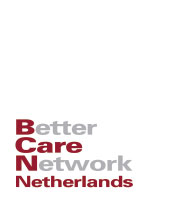EUROPE: EU Parliament Acts Against Child Trafficking [news]
[BRUSSELS, 9 October 2008] - The European Union needs to develop a programme against child trafficking, the bloc’s only directly elected institution has declared.
Between two and four million people - most of them children - are estimated to fall victim to forced labour and other forms of trafficking each year.
Since the Amsterdam Treaty came into effect in 1999, trafficking in human beings has been named as an area of responsibility for the EU as a whole. Yet even though the Union’s executive, the European Commission, drew up a strategy on the rights of the child in 2006, anti-exploitation campaigners feel that it does not grapple properly with the problems associated with trafficking.
More than half of the European Parliament’s 785 members have now signed a declaration urging that the situation be remedied by setting up a specific EU-funded scheme to address this scourge. Under the assembly’s rules of procedure, the declaration has enough support to be formally endorsed by the entire body.
Law enforcement and immigration take precedence
The child rights advocacy group Terre des Hommes has complained that the issue of trafficking tends to be viewed through the prism of law enforcement and control of immigration. As a result, when authorities identify a child who has been trafficked, their main objective can frequently be to seek information about organised crime, rather than to give protection to the boy or girl in question. In many cases, EU governments go as far as making protection conditional on the child cooperating with the justice system.
Salvatore Parata, spokesman for Terres des Hommes, said that the EU has ”confused child trafficking with migration and with the sexual exploitation of adults.” Child trafficking should instead be viewed as a broader phenomenon which can also involve the drugs trade, begging and illegal adoptions, the group believes.
Last month the London police headquarters Scotland Yard agreed to liaise with Romanian authorities to address allegations that Romanian children are being forced to beg and steal in Britain. Although similar allegations have surfaced in Madrid and Valencia, Spanish authorities have not yet undertaken any concrete measures, according to Terre des Hommes.
It has also found that centres throughout the EU accommodating children who have migrated without the company of an adult have reported numerous cases of children leaving the centres under dubious circumstances. So far, though, there has been no coordinated EU response to these reports.
’Not doing enough’
Diana Wallis, a British Liberal member of parliament (MEP), said that the Union is ”not doing enough to get to grips with this problem.
”This horror is still being perpetuated 200 years after the abolition of slavery,” she added, recommending that EU governments should share more information about what they are doing against child trafficking at the national level.
Simon Chorley, policy officer with the London-based group Stop the Traffik, argued that both the EU’s internal and foreign policies should address the related issues. ”Children need to be correctly identified as victims of trafficking, not as criminals.”
He also drew a link between child trafficking and the exploitation of minors in poor countries, citing estimates that half of the chocolate consumed in Europe is made from cocoa that has been picked by young Africans who have been forced to work.
Meanwhile, the Parliament urged 9 October that the EU should formally set itself the objective of reducing child poverty by half within the next four years. Almost 19 million children are at risk of poverty in the EU, according to a parliamentary report, which demanded that the Union’s governments should make adequate resources available to deal with this matter.
Swedish MEP Eva-Britt Svensson said that child trafficking is closely related to hardship. ”Poverty is one of the main reasons for this ongoing slavery.”
The report found that although having a job is the best defence against poverty, it does not always provide a guarantee. It maintained that meeting the needs of both the employed and unemployed should be viewed as a question of human rights.
While most EU countries have introduced minimum income schemes, with the stated aim of helping people who cannot fend for themselves, the Parliament’s report said that social assistance can often provide less money to recipients than they require to ward off the risk of poverty.
[Source: IPS - Inter Press Service;
Website: www.ips.org]
EU Parlement treedt op tegen kinderhandel
ingevoerd op 19-10-2008
Overig nieuws
10-02-2026 - Artikel over de werking van Kafalah
26-01-2026 - Mbo-stages in kindertehuizen niet langer toegestaan
13-01-2026 - Podcast over zorgverlater Surja
08-01-2026 - Themanummer tijdschrift over familieversterking
05-01-2026 - White paper UNICEF over gezinsondersteuning
23-12-2025 - Publicatie UNICEF over ouderschapsondersteuning
23-12-2025 - Casestudie over transitie naar familiegerichte zorg
09-12-2025 - Oproep aan Prins Harry en Meghan: kinderen horen niet in een weeshuis, maar bij familie
08-12-2025 - Rapport over seksuele uitbuiting van straatkinderen
07-12-2025 - Impact van twintig jaar Lumos
01-12-2025 - Seksueel misbruik en uitbuiting onder zorgverlaters
26-11-2025 - Familie re-integratie van straatkinderen in Zimbabwe
14-11-2025 - Holistische gezinshereniging in Zuid-Afrika
13-11-2025 - Transitie van residentiële zorg naar gemeenschapsgerichte ondersteuning voor kinderen met een beperking
29-10-2025 - Podcast over de gevaren van voluntourism
 | NIEUWS |  |
Zoeken in nieuws
 |  |
 | Deel deze pagina |  |
 |  |
PrivacyverklaringBetter Care Network Netherlands vindt uw privacy belangrijk. Wij verwerken persoonsgegevens in overeenstemming met de geldende privacywetgeving. In onze privacyverklaring staat precies wat u van ons kunt verwachten en aan welke regels we ons houden. |
|
|
Copyright 2026 - Better Care Network Netherlands



